In order to test a hypothesis, a scientist would __________.
Perform an experiment
In an experiment, a factor that changes is called a ________
variable
Which part of a microscope should be used with the low-power objective, but not with the high-power objective?
Coarse Adjustment
)
The graph below shows the average monthly temperatures at one location on Earth over a three year period.
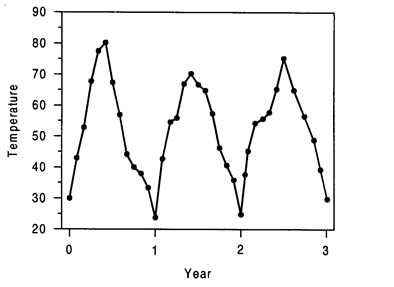
What was the highest recorded temperature?
80 Degrees
The "manipulated" variable
Independent variable
What is defined as a scientist's "educated guess" about a problem?
Hypothesis
A scientist would like to test the effect of heat on the function of a certain enzyme. What would not be an appropriate first step?
Completing a data table with expected results, drawing a conclusion, etc.
The total magnification of an image formed by a compound light microscope is a result of the combined magnifications of the______________
eyepiece and objective lense
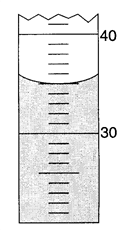
What is the volume measurement?
35.0 mL
The "responding" variable
Dependent variable
The logical and systematic process of solving a problem is known as ______________
The Scientific Method
A student wants to find out if the rainfall in her town contains pollutants. The best way to gather this information would be to collect________________.
Several separate samples on several rainy days
A student views some cheek cells under low power. Before switching to high power, the student should do what?
Center the image being viewed
Below is a graph that shows the activity of a mouse for Monday and Tuesday.
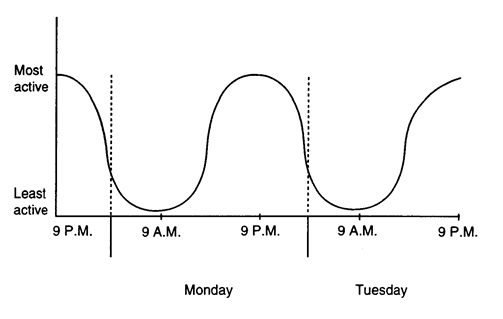
On Wednesday, the mouse would probably be most active at?
9 P.M.
If someone states that "the plants grew 10 cm, 9 cm, and 12 cm"
What type of data is that?
Quantitative
What is the final step of the scientific method?
Drawing a conclusion
A student preformed an experiment designed to test the rate of evaporation of different solutions. He had different beakers containing water mixed with various substances, as well as one with just water. The beaker containing only water is known as the ________
Control
A slide of human blood cells was observed in focus under the low-power objective of a compound light microscope that had clean lenses. When the microscope was switched to high power, the image was dark and fuzzy.
Which parts of the microscope should be used to correct this situation?
Diaphragm and fine adjustment
The diagram below show an enlarged view of the beams of a triple-beam balance.
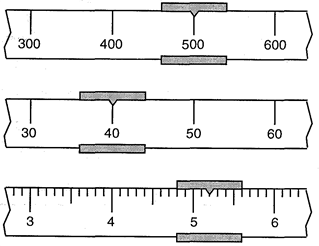
What is the correct reading of the triple-beam balance?
545.2 g
A scientist would like to test the effect of heat on the function of a certain enzyme. Which would not be an appropriate first step?
A) doing research in a library
B) having discussions with other scientists
C) completing a data table of expected results
D) using what is already known about the enzyme
C) completing a data table of expected results
What is the part of an experiment that does not change, and serves as a basis for comparison?
Control
A gardener did an experiment to determine which of the three brands of fertilizer would produce the most growth in his plants. For three different plants of the same species, he used each of the three brands of fertilizer. Once a week, he made observations for each plant. Which would have improved the experiment?
Testing each fertilizer with more than one plant
The diagram below shows a simple microscope. Four parts of the microscope are labeled A, B, C, and D.
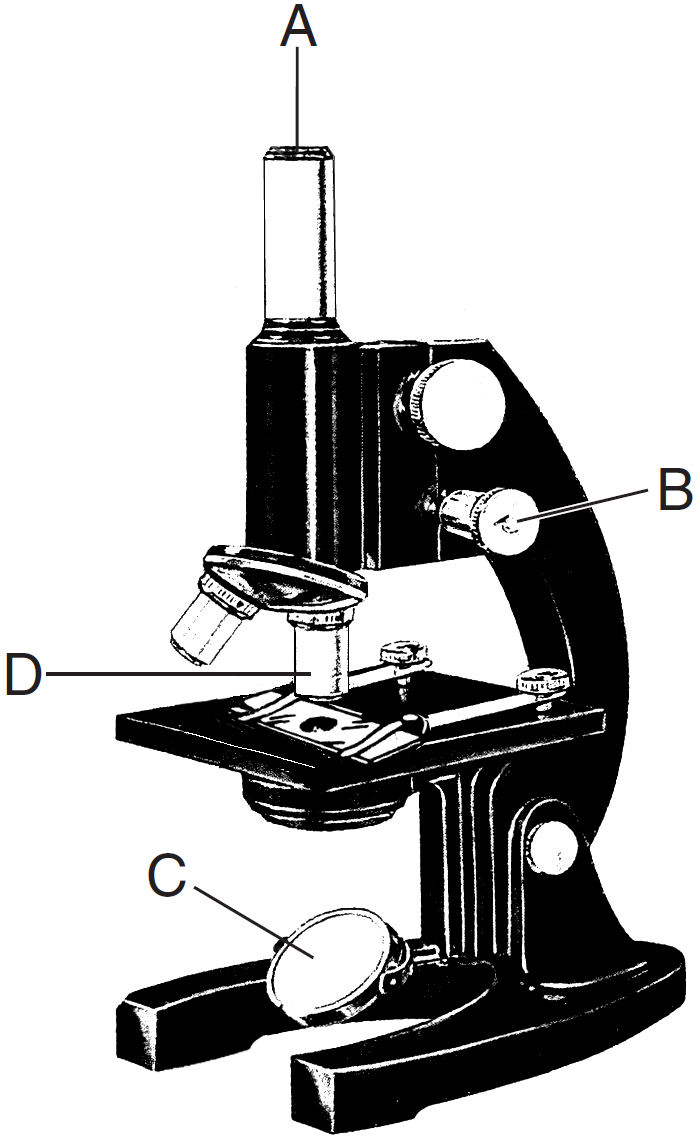
Which part of the microscope is used to bring the image of the object on the slide into focus?
B
The sphere was dropped into water in a graduated cylinder as shown below.
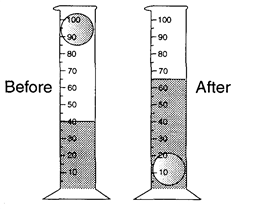
What is the volume of the sphere?
25 mL
If a hypothesis is proven untrue, does that mean you did something wrong?
NO!